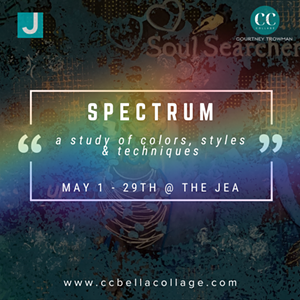I WAS IN the shower today and the lights started to flicker on and off. We were in the midst of a storm and I yelled to my wife, “Is it time to go home”?
She didn’t know what I was talking about.
The flickering lights brought back memories of my old hometown of Dumont, N.J., and what was virtually my second home, the Oval Bar. It no longer exists, and from what I am told has been turned into an upscale yuppie eatery.
Come closing time at the Oval, John the bartender would always flicker the lights and bellow, “Motel time, you don’t have to go home, but you can’t stay here”.
The decision as to what to do at that point would always vary. Home was an option, but more often than not, a last resort. A six-pack to go was allowed in those days, and usually a done deal. Then it was either off to somebody’s house to continue the party, or maybe a jaunt into the city where who knows what kind of trouble we could get into.
For those who grew up in my area there is only one “city.” For all you others, that of course is New York City. Dumont sits eight miles from the George Washington Bridge, and 25 minutes from the Lincoln Tunnel.
I’m here to tell you from experience that “the city” really does never sleep. A carload of Jersey boys at 3 a.m. could find anything that they so desired, and unfortunately sometimes more.
Dumont is a small town, not more than a mile square, yet home to 13 different bars. Each was unique and had their own clientele.
What you saw in the Frontier Room was not what you were going to see at the Oval. The Park Tavern was an older crowd. Donahue’s was a little corner bar, McGloin’s mostly blue-collar guys, and at Grant’s Tavern you could get a bite to eat.
Each was different in its own way. You were a regular at one, but always a visitor at another. You respected that and acted accordingly.
The Oval was a shots-and-beer workingman’s type of joint that had a combination of old and young, which was very rare at that time. All the youth were longhairs and doing a lot more than just experimenting with recreational drugs, while the older crowd were stone hardcore alcoholics who kept John pouring the Dewar’s all night long.
They had Rheingold, which was a decent local beer on tap along with Budweiser. A 10-ounce glass of draft was a quarter. Unlike in Savannah, kickbacks were not only given, but also expected. Every third or fourth drink would be on the house, it was a custom in Dumont.
First thing you did when entering a saloon in Dumont was to throw your money on the bar. That established your position at said bar, and of course, for risk of his life, nobody dared touch it.
You didn’t have to tip after every drink as is expected here, a system which I find absurd. You left some of your cash on the bar at the end of the night, and you never stiffed the help. How could you look them in the face tomorrow?
The bartender, whether it be John (he rolled his sleeves up to show his biceps, which unfortunately had deserted him a good 20 years prior), Dougie or Dave Villone, would tap the bar, say “good luck,” and refill your glass. For you uninitiated Savannahians, that’s what’s called a kickback — and also called good business.
Bars had their team allegiances also. The Oval Bar was for the Mets and the Frontier Room was for the Yankees. You would never see the Mets on TV at the Frontier Room, or for that matter the Yanks at the Oval. It was always one or the other where I came from, you had to make your preferences known, stick to them, and often be forced to fight over them if need be.
Heinz or Hunt’s, Chevy or Ford, Beatles or Rolling Stones, Yankees or Mets —there was nothing in the middle in Dumont.
Everybody smoked, and 95 percent of us smoked Marlboros. The cigarette machines would feature row upon row of Marlboros, a row of Winstons and a row of Salems. Smoke anything else and you ran the risk of having your masculinity questioned or being called a Communist, which in those days was a dirty word.
If somebody wanted to buy you a drink and you already had one, the bartender would place an extra coaster in front of you. If it was your birthday, those coasters would build up to a nice stack that created an incredible hangover the next day.
The jukebox was great and as varied as the patrons were. You might hear Bunny Berrigan’s circa 1930’s hit “Can’t Get Started” just before or after a good Stones song. Dean Martin next, and then the Allman Brothers Band, you just never knew.
“Under the Boardwalk” by the Drifters was B41; I can attest to that, I punched its number more than once and sang it while drunk at the Oval many times. This was pre-karaoke times and I now humbly apologize to all concerned.
The pool table was a quarter, but you had to play for a buck — nobody racked for free at the Oval. You called your shots and luck was not a factor. An old vomit stain grew out of the side pocket, but we learned to play around it.
The bathroom was small, a one-pisser, and to my knowledge nobody ever had the nerve to sit down. Never wash your hands, in fact for that matter, never touch anything was our motto. The back door was located near the john, and was virtually a revolving door for the longhaired patrons who would conveniently step outside to smoke a joint.
The Oval Bar’s physical configuration was what made it special. It was in fact shaped in an oval, which meant that you were always staring across the bar at your fellow patrons.
This created great people watching opportunities and a chance for significant eye contact. Sometimes wanted and sometimes not. Many a liaison was established with willing women, but just as many a fight would brew, as guys would size each other up as the night wore on.
Not a weekend night went by without a fistfight at the Oval. You might go a month at the Frontier Room and not catch the scent of violence, but it was always in the air and prevalent at the Oval.
Billy Carlson, who was Chuck Wepner’s sparring partner drank there. Who was Chuck Wepner? He was the pug who Sylvester Stallone based the Rocky movies on. We called him the Bayonne Bleeder.
So the lights flickered at the house today, and a part of me I hadn’t thought about in many a year came flooding back as I showered. Thirty-five years removed from that establishment, I could see it, smell it and feel its energy once again.
What more could a young fool want? Friends, foes, smoke, beer, pool, music, energy, and excitement. It was my second home when I was a wild and crazy guy, and when the lights flickered today, I was him once again. 
E-mail Tom at [email protected]
To comment, e-mail us at





















